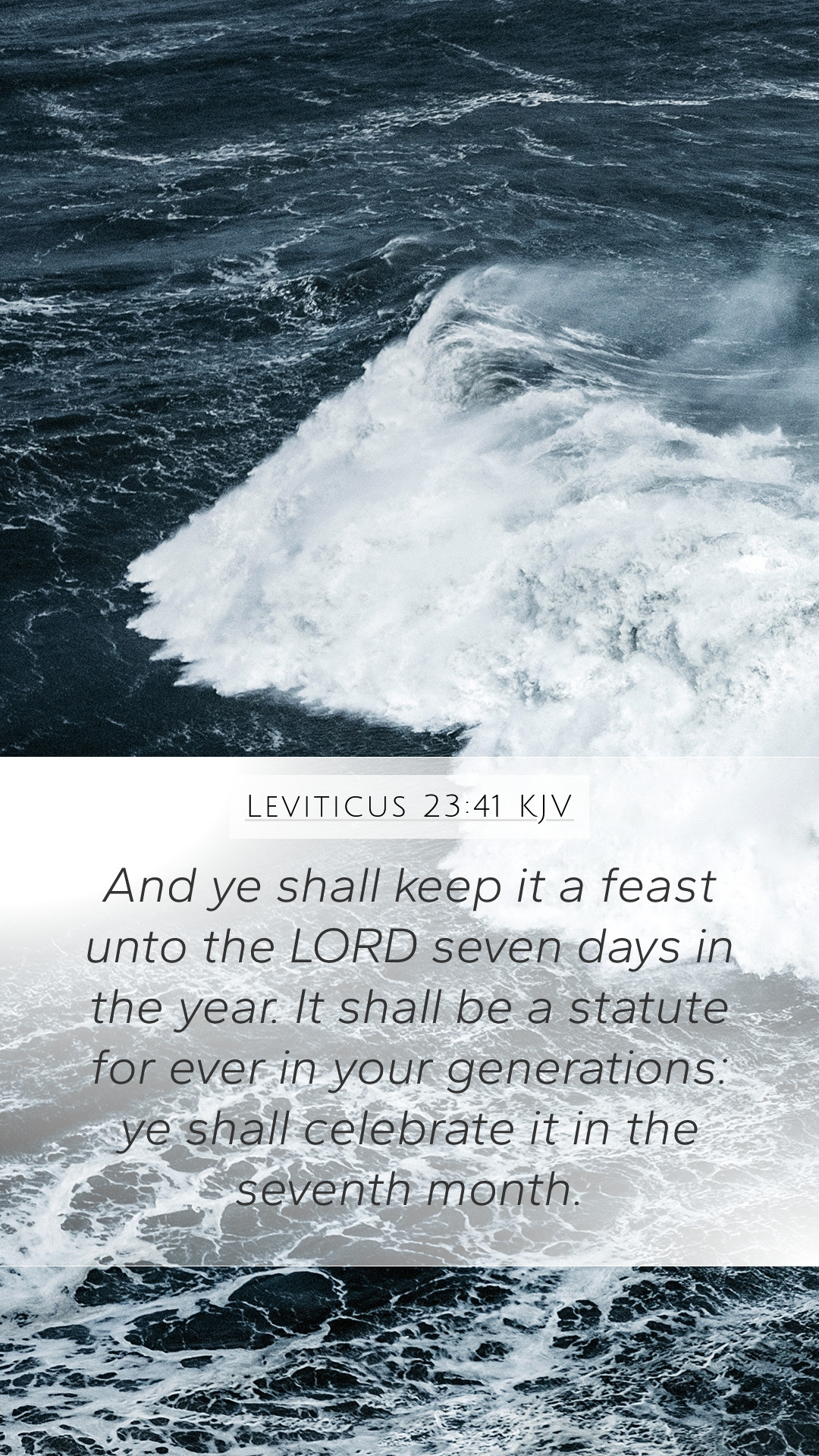Understanding Leviticus 23:41
Leviticus 23:41 states:
“And ye shall keep it a feast unto the LORD seven days in the year. It shall be a statute forever in your generations: ye shall celebrate it in the seventh month.”
Verse Summary
This verse is part of the regulations for the Feast of Tabernacles, an important festival in the Jewish liturgical calendar. It emphasizes the importance of celebrating this feast annually and perpetually.
Commentary Insights
-
Matthew Henry:
Henry notes that this verse instructs God’s people to keep the Festival of Tabernacles as a reminder of God's provision and protective presence during their wilderness journey. This celebration underscores the themes of gratitude and communal joy, intended to foster unity among God's people.
-
Albert Barnes:
Barnes elaborates on the significance of the feast, mentioning that it served to commemorate the Israelites’ journey in the wilderness and their reliance on God. The "seven days" of celebration symbolize completeness in divine provision. He emphasizes that this event draws attention to God’s faithfulness and encourages remembrance among successive generations.
-
Adam Clarke:
Clarke offers additional historical context, explaining that this feast included offerings dedicated to God and involved a joyful atmosphere, filled with worship and reflection. He points out that the emphasis on a "statute forever" signifies the enduring nature of God's covenant and the call for His people to honor their past while looking forward.
Key Themes
The verse encapsulates several key themes:
- Remembrance: The Feast of Tabernacles is a time to remember God’s goodness and faithfulness.
- Community: It encourages communal celebration and fellowship among God’s people.
- Thankfulness: A thanksgiving for the harvest and God’s provision is central to the feast.
- Perpetuity: The instruction to keep this feast "forever" indicates its importance in the lives of future generations.
Applying the Verse Today
While the cultural practices surrounding this event may differ today, the underlying principles remain relevant. Believers can apply the themes of gratitude, community, and remembrance in their lives through:
- Thanksgiving Celebrations: Creating personal or communal traditions of thanksgiving.
- Bible Study Groups: Gathering to study God's faithfulness as revealed through Scripture.
- Community Service: Engaging in acts of service and reflection to honor God’s ongoing provision.
Cross References
- Exodus 23:16 - Discusses the Feast of Harvest and its significance.
- Deuteronomy 16:13-15 - Further details the observance of the Feast of Tabernacles.
- John 7:2 - Refers to the Feast of Tabernacles in the context of New Testament events.
Conclusion
Leviticus 23:41 serves as a reminder of God’s faithfulness and a call to celebrate His goodness through annual observances. Exploring the insights from biblical commentaries can enhance our bible verse understanding and enrich our bible study insights. As we interpret this and other Bible verses, we are encouraged to reflect on their applications in our daily lives, maintaining the spirit of gratitude and community that God desires.


